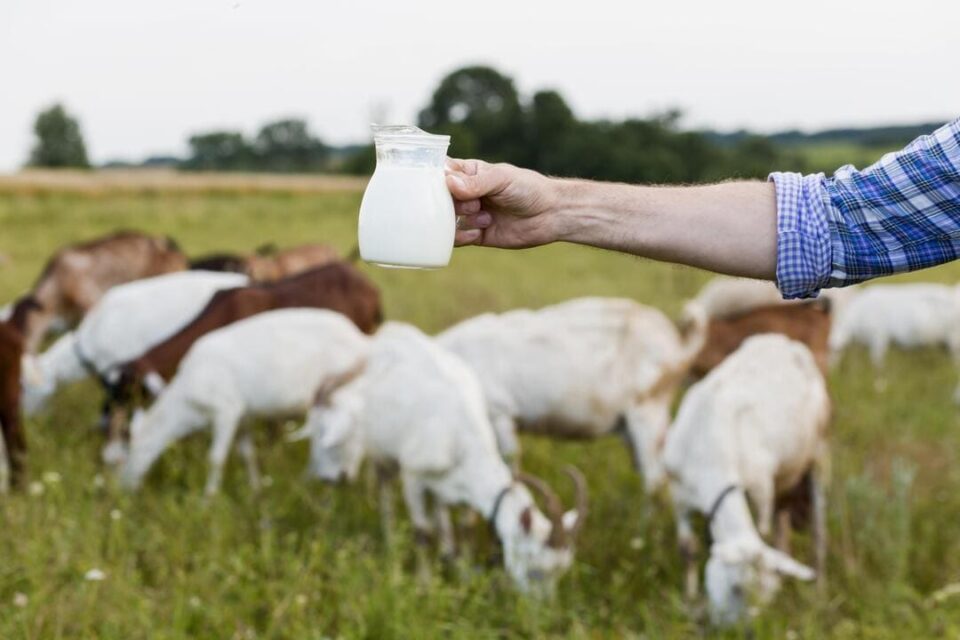In the realm of medical mysteries, there exists a silent epidemic that affects millions worldwide – non-alcoholic fatty liver disease (NAFLD). Today, I’d like to introduce you to Avinash, a 45-year-old gentleman, whose journey serves as a compelling case study as we delve into the potential benefits of goat’s milk in managing this condition.
Avinash’s Struggle with Fatty Liver
Avinash was leading an apparently normal life until a routine health checkup uncovered a disconcerting diagnosis – NAFLD. This condition, characterized by the accumulation of excess fat in the liver, can lead to inflammation, scarring, and even liver failure if left untreated.
His diagnosis was not unique. NAFLD has become a global concern, often regarded as a silent epidemic. As his Ayurvedic physician, I embarked on a quest to explore unconventional solutions, one of which was goat’s milk.
The Healing Potential of Goat’s Milk
What Sets Goat’s Milk Apart?
Goat’s milk, often overshadowed by its bovine counterpart, has been consumed for centuries in various parts of the world, including India. Unlike cow’s milk, it boasts certain unique properties that piqued my interest in Avinash’s case.
1. Low-Fat Content: Goat’s milk contains less fat than cow’s milk, making it an appealing choice for individuals with fatty liver disease.
2. Rich in Medium-Chain Fatty Acids: These fats are easier for the liver to process, potentially reducing the strain on an already compromised organ.
3. High Levels of Antioxidants: Goat’s milk is known to be rich in antioxidants like selenium and vitamin E, which can help combat oxidative stress in the liver.
4. Easily Digestible: The smaller fat globules in goat’s milk may be easier for a stressed liver to digest.
The Role of Goat’s Milk in Avinash’s Journey
With Avinash’s consent, we embarked on a comprehensive dietary plan that included goat’s milk as a prominent component. Here’s how it played a role in his recovery.
1. Improved Liver Function
Within a few months of incorporating goat’s milk into his diet, Avinash’s liver function tests began to show improvement. The reduction in liver enzyme levels was a promising sign.
2. Weight Management
Goat’s milk helped Avinash maintain a healthier weight, reducing the excess fat in his body, a critical step in managing NAFLD.
3. Enhanced Nutrient Intake
Goat’s milk provided Avinash with essential nutrients like vitamin B12, calcium, and protein, ensuring his overall well-being during his recovery.
Patients Frequently Asked Questions
Is goat’s milk a cure for fatty liver disease?
No, goat’s milk is not a cure but can be a beneficial dietary addition for those with fatty liver disease.
Can I replace cow’s milk with goat’s milk entirely?
It’s advisable to consult a healthcare professional before making any significant dietary changes. Goat’s milk can be a part of a balanced diet.
Are there any side effects of consuming goat’s milk with fatty liver disease?
Goat’s milk is generally well-tolerated, but individual reactions may vary. Monitor how your body responds and consult your doctor if you notice any adverse effects.
How much goat’s milk should I consume daily?
The recommended amount can vary based on individual factors. A healthcare professional can provide personalized guidance.
Can goat’s milk replace medical treatment for fatty liver disease?
No, goat’s milk is not a substitute for medical treatment. It should complement a comprehensive healthcare plan.
Are there any specific types of goat’s milk to look for?
Look for unprocessed, full-fat goat’s milk from a reputable source to ensure you get the full nutritional benefits.
How long does it take to see improvements in goat’s milk consumption?
Results may vary, but some individuals may observe improvements in liver function within a few months.
Can goat’s milk prevent fatty liver disease in the first place?
It’s unlikely to prevent fatty liver disease entirely, but a balanced diet that includes goat’s milk may reduce the risk.
Are there any dietary restrictions while consuming goat’s milk for fatty liver disease?
It’s advisable to limit or avoid high-sugar and high-fat foods while incorporating goat’s milk into your diet.
Should I consider goat’s milk if I have lactose intolerance?
Goat’s milk is often better tolerated by those with lactose intolerance, but individual reactions may vary. Monitor your symptoms and consult your doctor.
Conclusion: Embracing Goat’s Milk in Fatty Liver Management
Avinash’s journey, in battling fatty liver disease, serves as a compelling testament to the potential benefits of goat’s milk. While it’s not a cure, incorporating this wholesome dairy product into a well-balanced diet can aid in managing the condition. As an Ayurvedic physician, I believe that Avinash’s success story highlights the importance of exploring alternative dietary options in conjunction with conventional medical treatment.
So, is goat’s milk good for fatty liver? In the words of Avinash and myself, we believe it’s certainly worth considering as part of your holistic approach to managing this condition.

